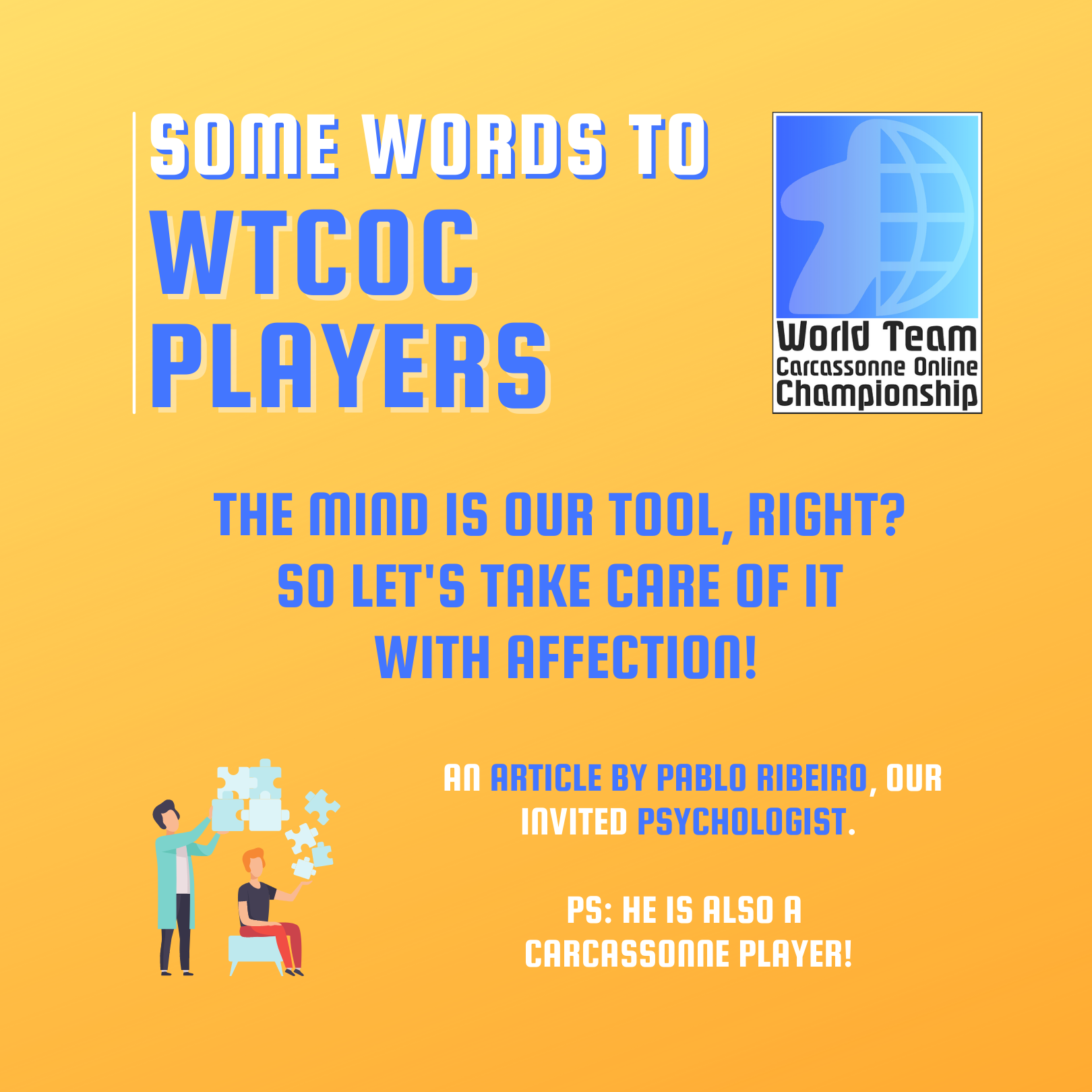The mind is our tool, right? So let’s take care of it with affection
Like any other mind sport, Carcassonne requires important cognitive processes, such as attention, memory, spatial, inductive and deductive reasoning. The improvement of these skills can guarantee much more than the consolidation of a great player, also contributing to the quality of life, work performance and healthy aging. Turning our focus to the competitive dimension, those who believe that developing these skills are enough to achieve the best performance are mistaken. Before being a mind, any game, be it board or not, is an exercise in sociability, which is expressed very clearly in the consolidation and application of rules.
Some rules are inherent in the existence of the game. Anyone who plays Carcassonne knows that it is not possible to amend a tile in an already occupied city and place a meeple, or that the side of the tiles that connect must always be of the same kind. In the competitive context, rules are added that are not in the game manual, but whose objective is to ensure the most fair dynamics possible. In this edition of the WTCOC we can mention the ban on the use of scripts and also the time rule, which provides for the need to grant victory if the game time limit is exceeded. There are still those rules that are not written, but the community has developed a sense of practicing them: it is the well-known fair-play, which is expressed, for example, when an athlete warns about a piece that has been discarded, preventing the opponent make a wrong count.
It is also possible to talk about customs that are not implicit rules, but make the environment of the practice of Carcassonne more pleasant and attractive even for those who just want to have fun, such as wishing for a good game, greeting your opponent after the match and (why not?) suggest ways it can improve your performance. It is the way in which each one interacts with these dimensions of playing that will make him a great and respected athlete. It is worth remembering that this relationship between playing and feeling well when playing is closely linked and helps the psychological well-being of any player and their results.
Performance or result?
Thinking of a more technical dimension, from the perspective of sport psychology, this discussion moves to the attention that every athlete should have for the relationship between performance and result. The result is the ratio between the athletes’ performances and, in the case of Carcassonne, the playing conditions — which are the tiles drawn for each one throughout the match. This notion makes it clear that what is under the control of each athlete is only his performance! Focusing on the result can be a big pitfall and, in addition to compromising performance, will generate frustration. That said, there remains the challenge of dealing with the results. Whether they are adverse or positive, both can generate disengagement, either due to overconfidence or the absence of it. To better handle any type of outcome, always keep in mind that the most important game of your life is the next one that you will play!
We are now heading to the knock-out phase of the WTCOC, keep your minds clear for optimal performance! For those who do not stay, remember: the 2021 edition ends one cycle, but another opens!
I couldn’t finish this article without a special thanks and mention to my friend and professional companion Luiz Vinhal. Without our long dialogues, studies and analysis, I would have nothing to say here.
Thank you very much!

